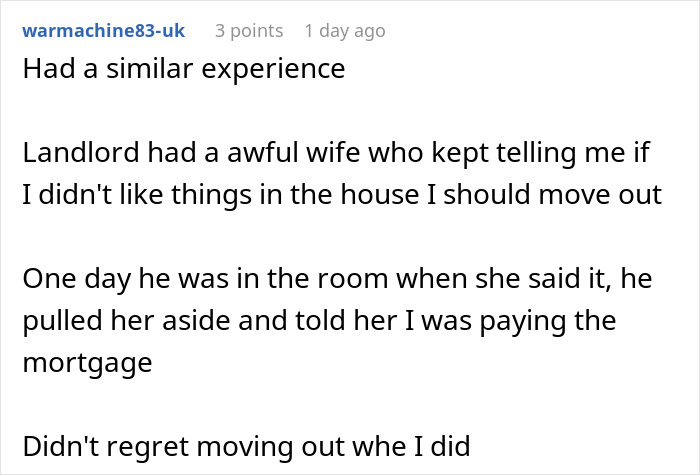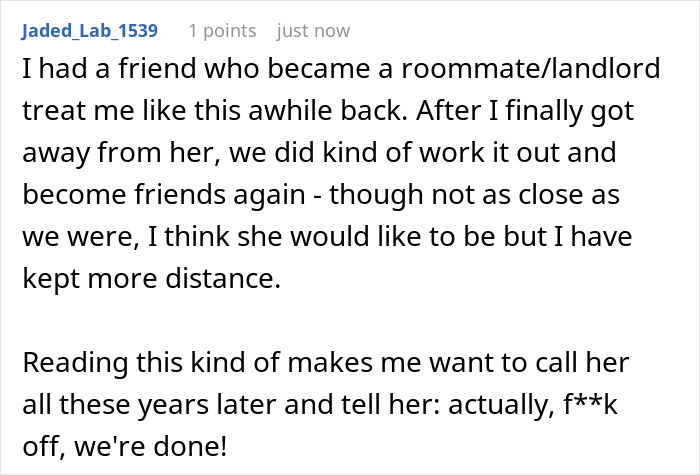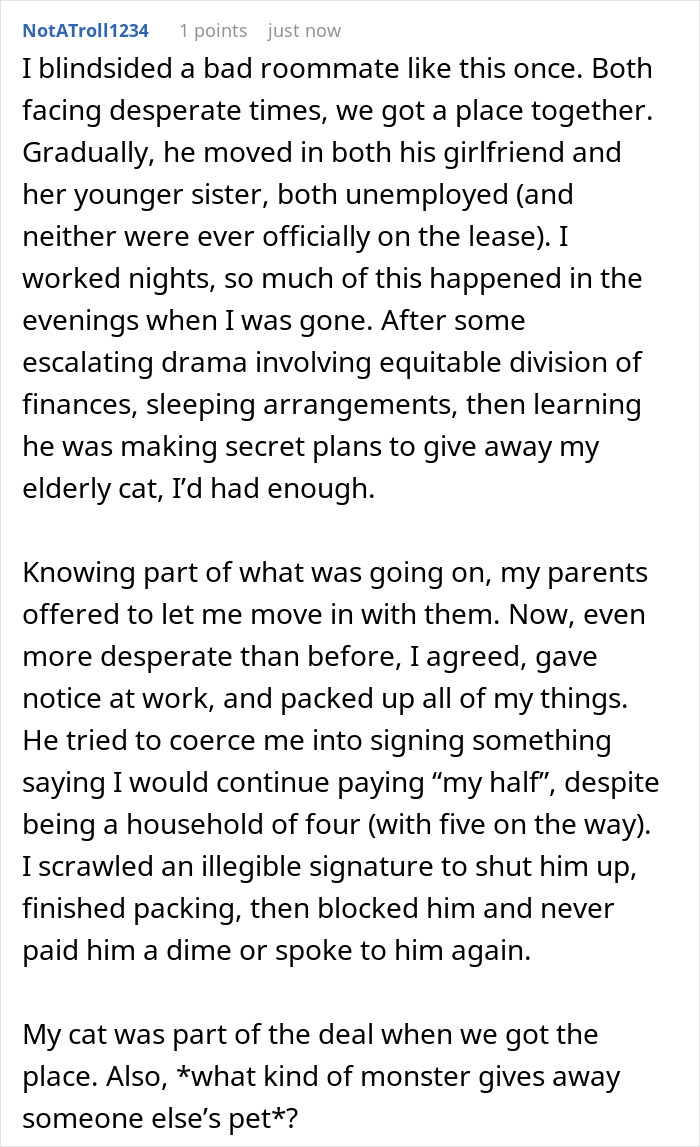Some people get drunk with power easily. Whether it’s becoming a high-ranking politician or being voted president of the book club, having a position of authority of any kind tends to bring out their arrogant self.
This appears to have happened to a man called Donald, who suddenly became a landlord to a working university student. He began playing the “my house, my rules” card every chance he had, seemingly without knowing that he was becoming unbearable to be around.
Sick of his behavior, the tenant moved out without saying a word, leaving Donald regretting his actions, big time.
No one wants to be around an arrogant person

Image credits: Getty Images (not the actual photo)
A university student who ended up being the tenant of a former roommate went through this problem
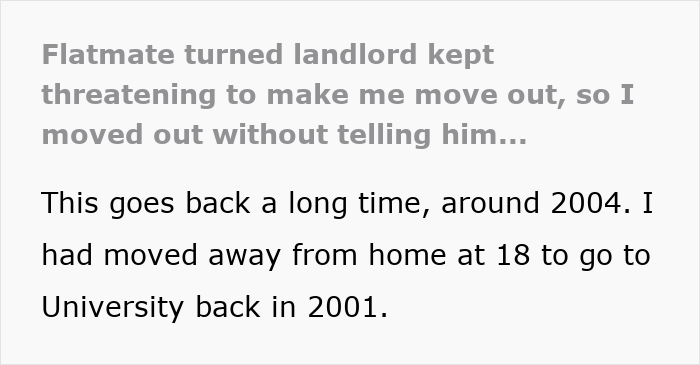
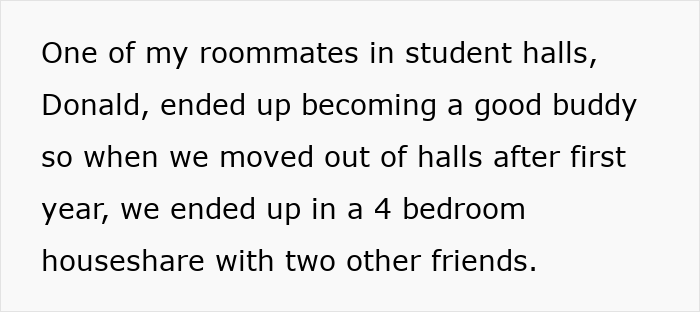
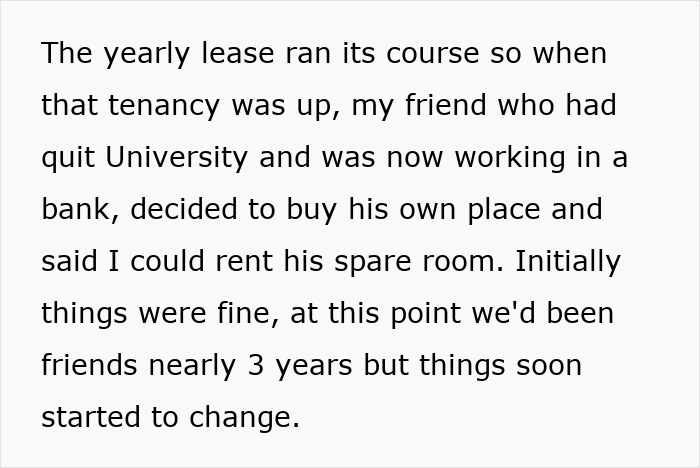


Image credits: silverkblack (not the actual photo)
The landlord, Donald, began power-tripping
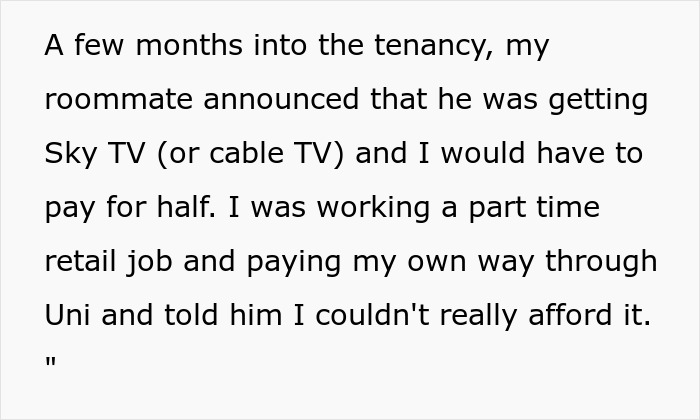

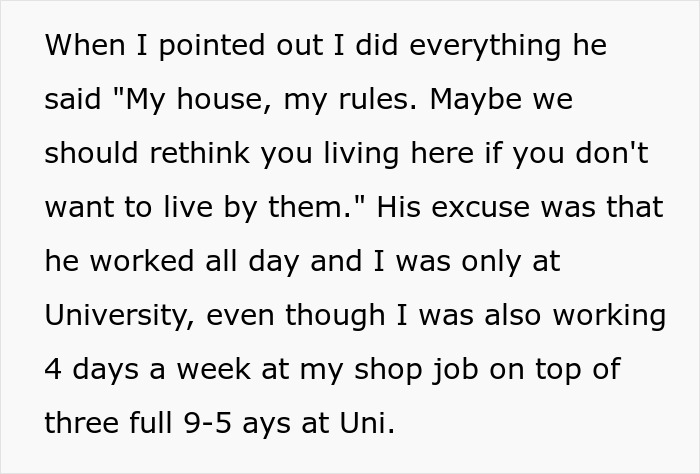
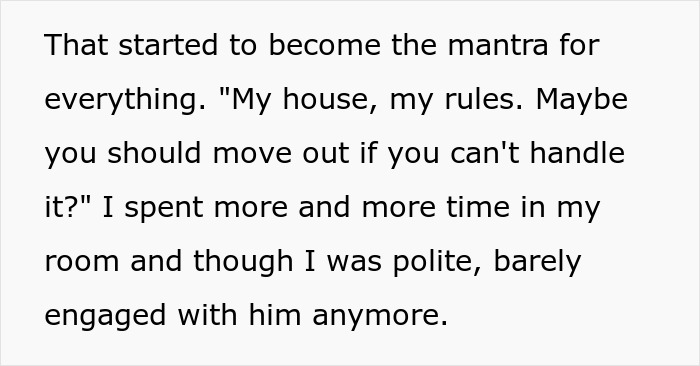

Image credits: A. C. (not the actual photo)
Fed up with Donald’s behavior, the author abruptly moved out
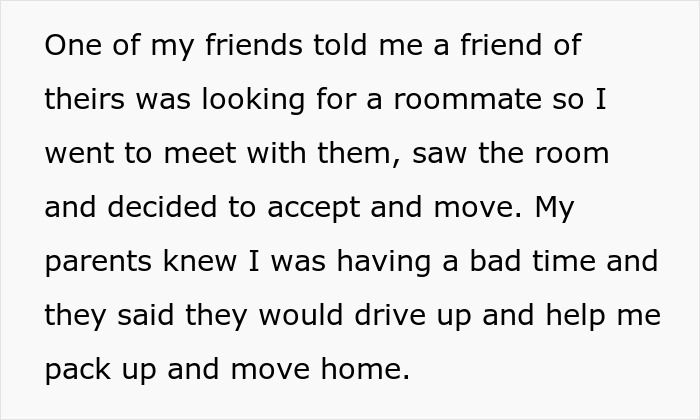


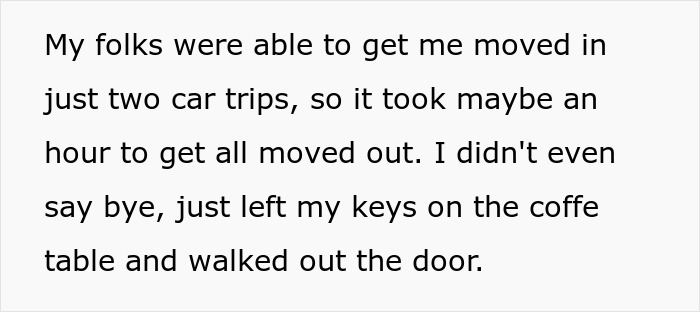

Image credits: Andrej Lišakov (not the actual photo)
As for Donald, losing his only tenant left him in a world of regret



Image credits: [deleted]
People in authority tend to have an inflated sense of confidence in themselves
It’s natural to have a healthy level of self-confidence. In fact, people pride themselves on this trait and attribute it to whatever success they may have experienced in life.
However, there is also such a thing as overconfidence bias, where a person may overestimate their abilities and knowledge. According to experts like psychologist Dr. Dillon Harper, it is the brain’s defense mechanism against anxiety, and it is also a self-esteem boost.
It becomes more of an issue when the individual holds a position of power, much like Donald in the story. According to workplace expert Dr. Michelle Gibbings, it only worsens as the person further climbs the totem pole.
“The more power a person feels, the more confident they are of the accuracy of their thoughts and beliefs. This means people in powerful positions are more confident that their opinions are right,” Dr. Gibbings wrote in an article for her website.
Going on a power trip may also be a form of self-protection, according to psychotherapist Tina Gilbertson, LPC. She says that dictating how things play out is one way such behavior manifests.
When dealing with a person who seems to be on a power trip, as Donald did with his tenant, Gilbertson advises showing empathy. In an article for Psychology Today, she encouraged asking questions, like, “Has that person experienced physical harm, emotional pain, or deep disappointment in relationships?”
From there, Gilbertson recommends showing patience toward the person, stating, “people need time, understanding, and acceptance in order to heal.”
The tenant tolerated Donald’s behavior for a while, but it eventually became unbearable to handle. At that point, moving out was, indeed, the only option for the sake of having peace of mind.
People in the comments had nothing but encouraging words for the author
















Others shared similar experiences
